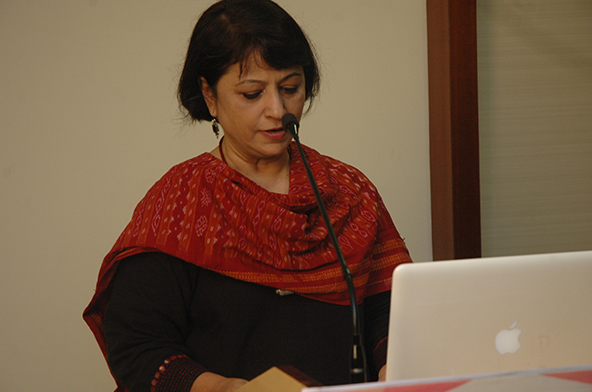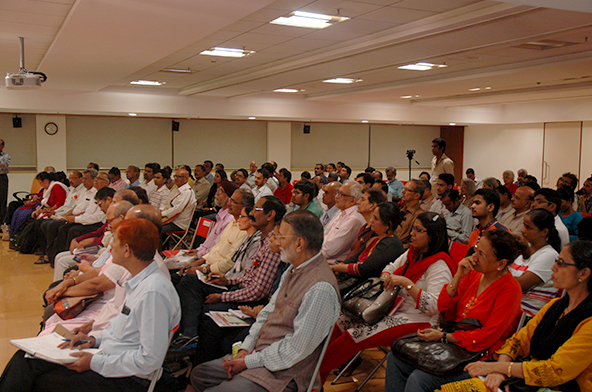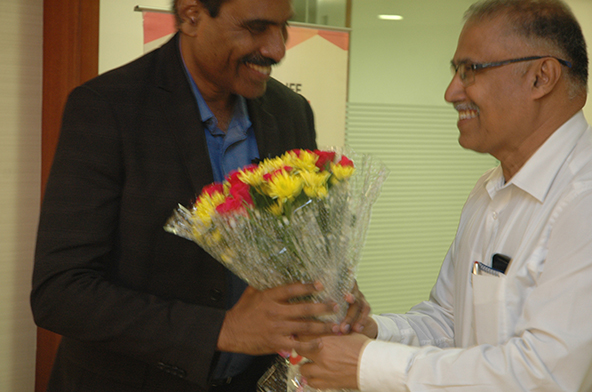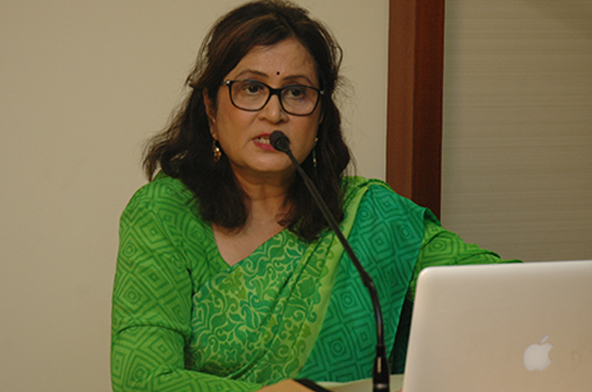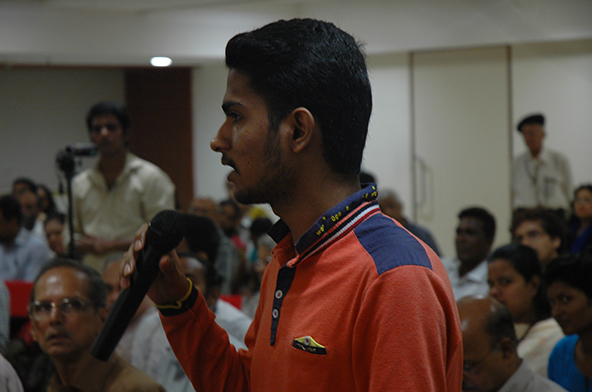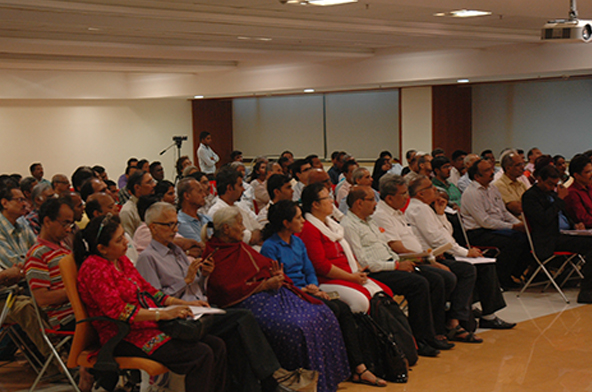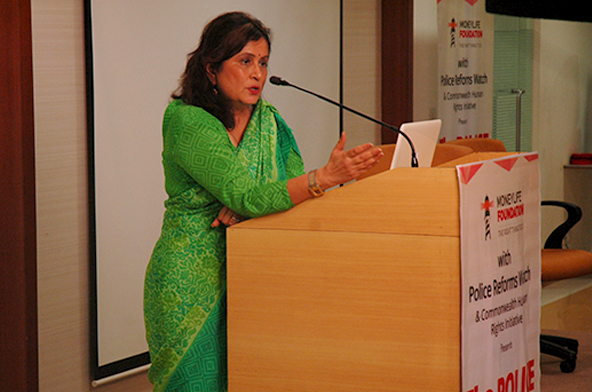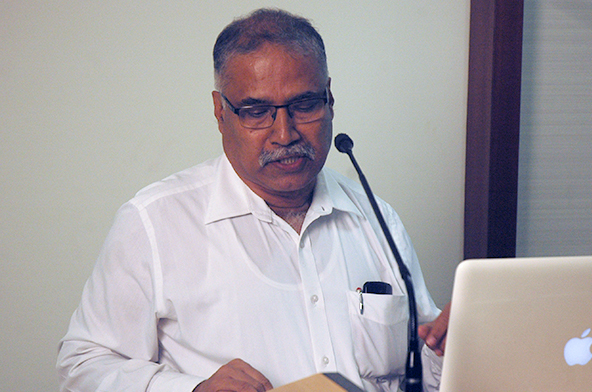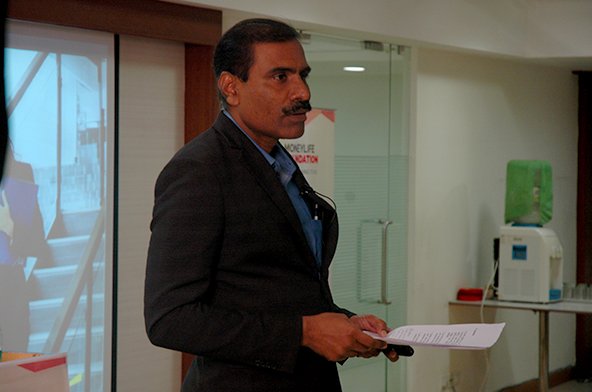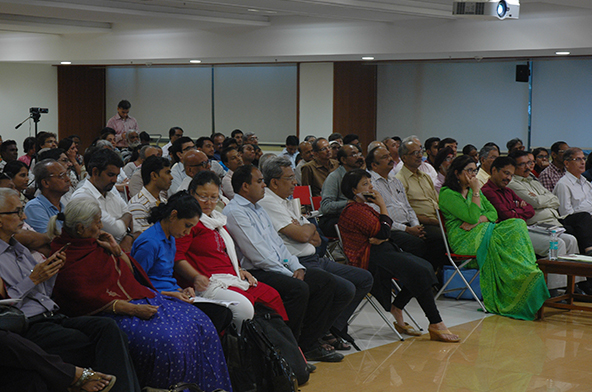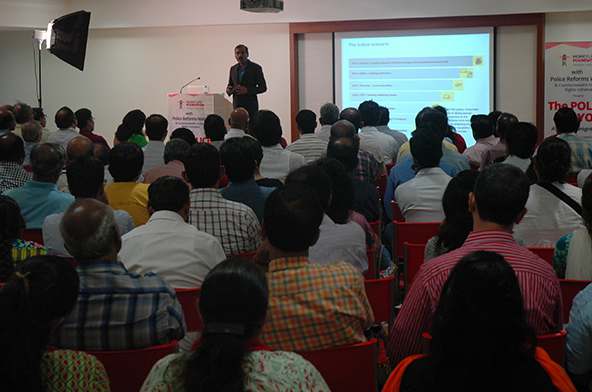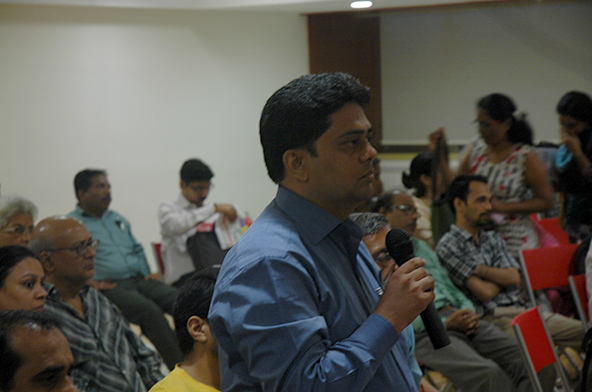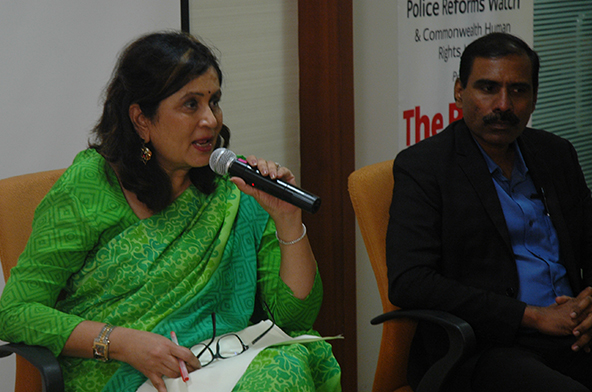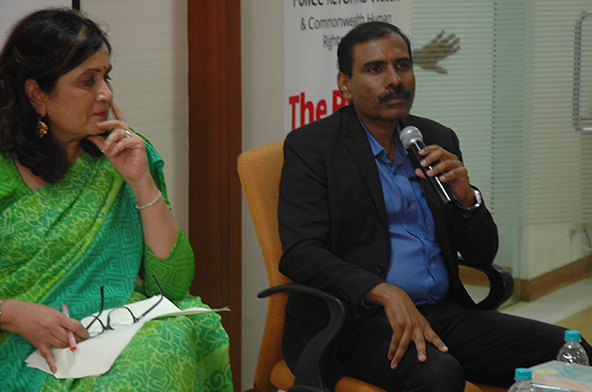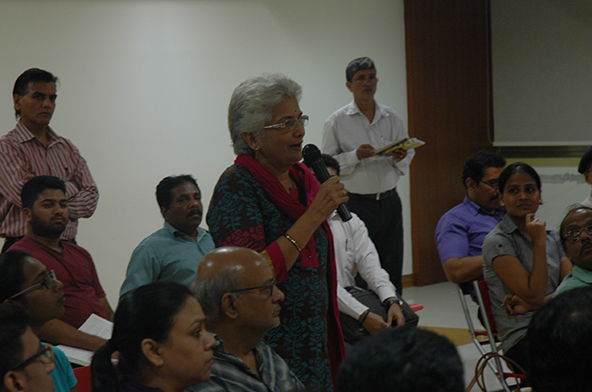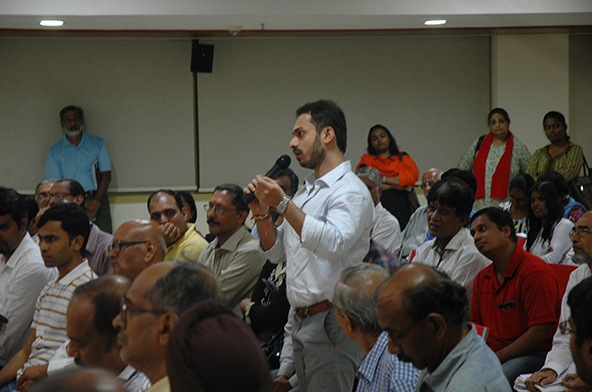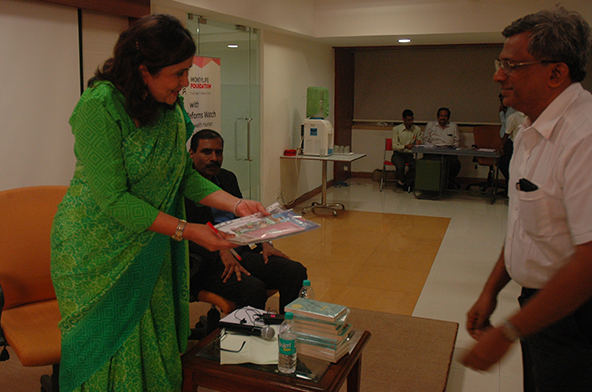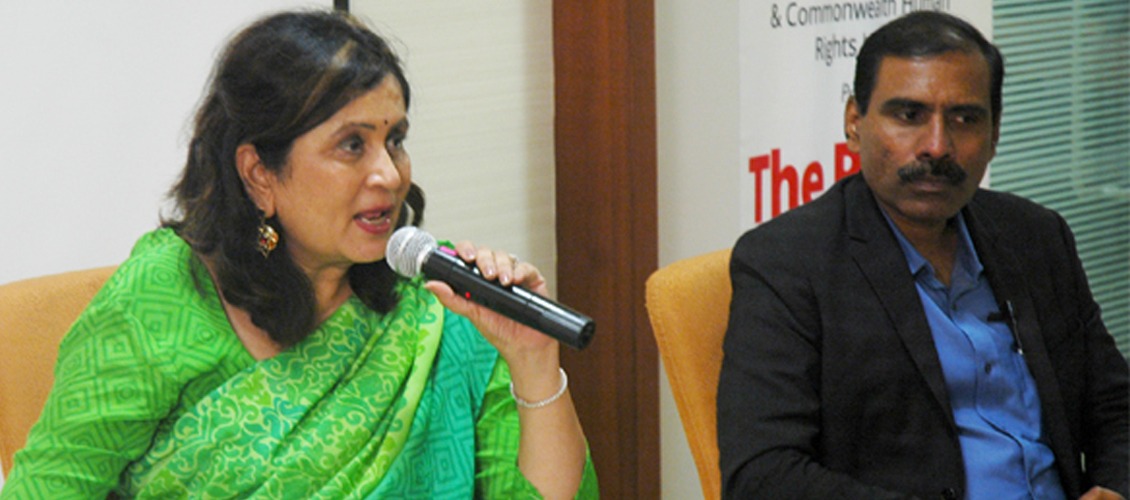
“With more and more incidents of sexual harassment getting reported, it is important for women to know the process to file such complaint, after understanding what constitutes the offense. At the same time, men also should know about the Act so that they cannot be wrongly framed”, says Senior Advocate Mrunalini Deshmukh. She was speaking at the sixth session under the “Police & You” series.
Moneylife Foundation with Police Reforms Watch with support from Saraswat Bank have launched the 12-week program (every Wednesday) that aims to spread knowledge about protecting yourself, your rights, the Indian Penal Code (IPC), cybercrime and economic offences. This was the sixth such session.
Senior Counsel Deshmukh, who has been legal counsel to Aamir and Reena Khan, Karisma Kapoor and Valentina Pedroni (former wife of Arun Nayar), among others, shared her experiences of dealing with the Sexual Harassment Act. She particularly mentioned one case where the complaint against the boss was made after he started to ignore the lady. Another case was where a guide was mentally torturing and thus pressurising a student.
The event was held in the well-appointed auditorium of Saraswat Bank headquarters, Eknath Thakur Bhavan.
Talking about Section 498A of the Indian Penal Code (IPC), Adv Deshmukh, one of the top lawyers practising in divorce and ancillary issues of custody and maintenance, said the rate of conviction under Section 498A when a woman is alive is less than 1%. In 1983, ‘Section 498-A of the IPC was introduced with avowed object to combat the menace of harassment to a woman at the hands of her husband and his relatives.
“Unfortunately, this Act is not used to resolve issues by the ‘have nots’ but by those who have. Most of the ‘haves’ use this Act as a weapon to seek or gain monetary benefits,” she added. Adv Deshmukh, along with Adv Fazaa Shroff-Garg, has written a book “Breaking up: Your guide to getting divorced”.
Ms Deshmukh informed the audience about a recent order passed by the Bombay High Court, where the Court fined a woman for not perusing the case filed under section 498A, after a settlement with her husband. Although the Court has to accept the quashing of the case application, this shows that the judiciary is also taking a stand on possible misuse of the Act, she added.
The HC had said, “if the complaint filed by the wife against the husband under section 498- A of IPC and other related provisions is dismissed on merits and the husband and his family members are acquitted, then it is clear that the complaint filed by the wife against the husband was a false complaint.”
The sixth session of the 12-week series on “The Police & You: What men & women need to know about Sexual Harassment Laws and Sec 498A” was conducted by Adv Deshmukh and Rajkumar Shriwastav, who is Director with the Fraud Investigation & Dispute Services of EY India.
Mr Shriwastav, a former police officer, explained as to what constitutes sexual harassment at workplace and the laws related with this. “Over the years, Indian companies are taking sexual harassment at workplace more seriously due to the widening impact of such complaints on the company reputation and morale of employees,” he said.
The Sexual Harassment of Women at Workplace (Prevention, Prohibition and Redressal) Act, 2013 (Act) mandates the employer to provide a safe working environment and display conspicuously at the workplace, the penal consequences of indulging in acts that may constitute sexual harassment and the composition of the Internal Complaints Committee (ICC).
According to data from the National Crime Records Bureau, during 2014, a total of 3.38 lakh cases of crime against women were reported, an increase of 9.4% over 3.10 lakh cases reported in 2013. At the same time, the number of complaints registered with the National Commission for Women (NCW) related with sexual harassment at workplace rose to 336 in 2014 from 249 in 2013.
Sexual harassment as per law includes unwelcome acts or behaviour – whether directly or by implication – such as physical contact and advance, a demand or request for sexual favours, making sexually coloured remarks, and showing pornography.
Mr Shriwastav then explained duties of employer towards employees, the Internal Complaints Committee (ICC) and the government. He also explained the process of forming the ICC as well as filing complaint to the ICC. “One single incident can also constitute harassment when it is demonstrated that it is severe and has a significant and lasting impact on the complainant,” he added.
The Director at EY India also advised employees to be aware, conscious and observant of the situation. He said, “If there is anything that can constitute to sexual harassment, you, especially women employees, need to speak up with superiors and seek resolution. At the same time, you need to extend support to other colleagues who may be undergoing similar situations.”
Mr Shriwastav also cautioned about differentiating between sexual harassment and work related matters including professional feedback, friendliness and consensual behaviour. “While behaviour like professional feedback or appreciation, offering to share food at lunch time and consensual dating is accepted, if such behaviour should not be accompanied by any acts of sexual harassment,” he said.
Before concluding, Mr Shriwastav informed the audience about various judgements from the Courts related with the penalty for non-compliance, principles of natural justice and non-appreciation of sexual harassment allegations.


